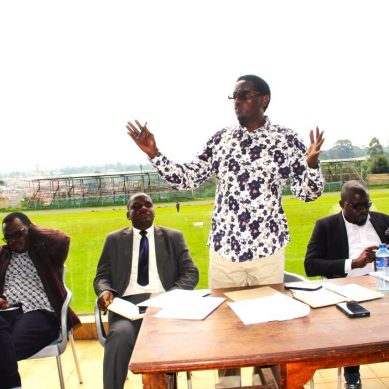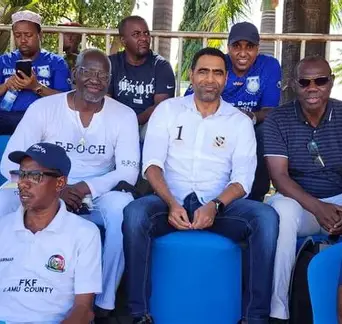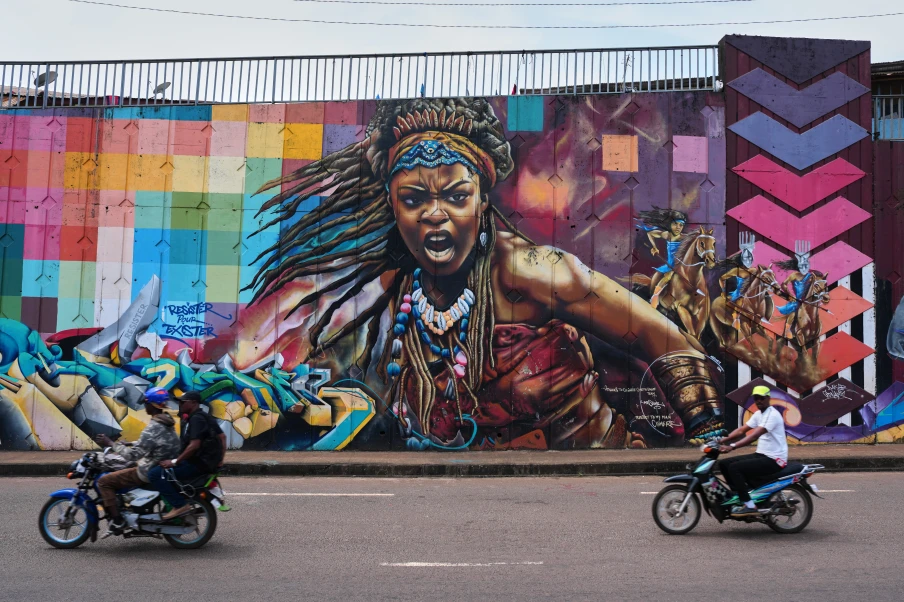
As the Kenyan government grapples provision of affordable healthcare, a herbalist in Kericho town – approximately 265 kilometres west of the capital, Nairobi – has become the go-to medical ‘consultant’ to bridge access to the basic need. Erratic healthcare service has rattled the public since the introduction of government health insurance almost a year ago and many Kenyans maybe dying – especially in rural areas – for lack money to pay for the government service.
As a result, Joseph Lemaiyian, a 46-year-old farmer and herder from Narok has carved out a niche for himself as a reliable traditional doctor and has fast evolved into a celebrity in Kericho and the surrounding areas because of herbal therapy. The service is drawing in hordes of patients who cannot afford high hospital charges or the facilities are long distances away from patients who deserve them.in other instances, poor transport infrastructure prevents them from reaching government hospitals.
Despite his humble beginnings, Lemaiyian is now a permanent fixture in Kericho town and its environs, where he administers traditional herbs on the streets, where has as established a business with high prospects, by prescribing cures for a stubborn diseases such as whooping cough, syphilis, diarrhoea and toothaches.
The medicine, harvested form plants and herbs from different parts of the country has earned him a reputation as a reliable ‘doctor’. The patients he attends to often return to thank or refer other patients him.
The herbalist says the confidence he has built is convincing him to transform his mobile ‘herbal pharmacy’ into a herbal hospital. Instructively, Kenya has a law in place that would allow such a hospital for alternative medicine if he successfully goes through a rigid vetting regimen designed to weed out quacks, rogue herbalists and witchdoctors.
The herbalist says his adventure into herbal cure started when he realised that people in his pastoralist Maasai community were struggling to access the government’s affordable healthcare. Part of the reason was the medical facilities were out of the reach of the poor as one needed to be a resident of an urban centre to access them. Even so, he adds, the cost of accessing the services is outrageously high for rural folks.
“I saw many people suffering from diseases that could be treated with herbs. I decided to learn more from experts in many family about how these plants could help,” Lemaiyian explains.
The herbal cure tutorials often took him away from home and spent long hours in the forest undergoing training, he says. Besides just identifying the plant species needed for different diseases, he was also tutored on the uses of parts of the plant – the leaves, twigs, stem, trunk, bark, flowers, fruits and the roots. His tongue and nose were the two important parts of his body that played the role of a laboratory – tasting and testing the strength of the herbs’ contents.
Over the years, he has gained the trust of many people who swear by his herbal remedies. He wears the aura of a ‘doctor’ and his ‘patients’ trust his services.
The herbs he uses are sourced from indigenous forests and bushes in far-flung places like Kisumu and Narok – both roughly 100 kilometres away from Kericho town. He meticulously selects plants with known medicinal properties, which he processes into power or liquid form depending on needs of his patients.
“I get the best herbs from Kisumu and Narok. I know what works for different ailments after the tough training I underwent,” Lemaiyian explains.
His knowledge of indigenous vegetation and their efficacy makes him a ‘doctor-in-demand’ in the area, with people arriving daily from different parts of the country to purchase medicines from his pharmacy.
In addition to dispensing herbal medicine at a nominal cost, Lemaiyain is also a farmer. He keeps cows, goats and sheep on his land in Narok. Back on the farm, he commutes into a veterinarian and uses his herbal medicine expertise to take care of his livestock. He says he does not need government veterinary services.
“Farming is my other passion. The animals provide me with milk and meat, and they help me earn money to support my family especially paying school fees for my children,” he explains. Other basic needs like housing and clothing are also covered by proceeds from his medical and veterinary services.
The combination of his farming and herbal medicine business has given Lemaiyian financial stability, allowing him to live comfortably and support his family.
For Lemaiyian, selling herbal medicine is more than just a business. It is a way of life that allows him to give back to his community. When he sees people consulting him on various health problems, he explains that the feeling is exceptional and knows that his medicine is helping them.
Over the years, he has built strong relationships and trust with his clients who revere him as a godsend and often return to him whenever they are sick or to appreciate his services.
“He saved me when I had a serious cough that no doctor could treat,” says James, one of his loyal clients. The client says he had high blood pressure convectional doctors were unable to rein in.
Despite the success Lemaiyian has enjoyed, there are challenges too. He says there are times when people doubt the efficacy of his herbal cure but the outcomes of his prescription is his evidence. With the evidence, they come to acknowledge the efficacy of his medicine.
He says persistence and belief in the power of traditional healing helped him overcome scepticism and establish himself as a trusted herbalist.
Lemaiyian’s business is not only profitable but also fulfilling. He estimates that selling herbal medicine provides him with higher income than farming alone. In his opinion herbal medicine business is very rewarding thus urges all not to die in silence but get access to reliable source of herbal drugs.
Looking ahead, Lemaiyian hopes to a hospital for herbal cure to supplement government and reach even more people who could benefit from his herbal medicine since all are available for any ailment. He also intends to train others in the art of traditional healing.
“It is something that has been passed down in my family, and I want to keep the tradition alive,” he says.
- A Tell / KNA report / By Kipyegon Mutai and Ian Kiplangat







